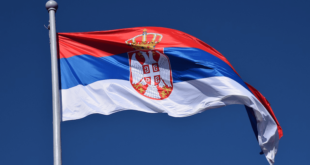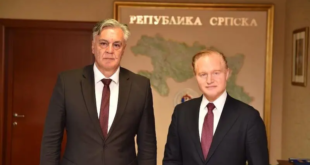Bosnian Serb leaders voiced their intention to hold a census in the Serb dominated part of the country Republika Srpska following last week’s failure by the country’s central parliament to pass a law that would open the way for a nationwide census in 2011.
“Republika Srpska’s government has submitted a draft census law to the (entity’s) parliament. We will adopt it and we will hold a census in April 2011,” Bosnian Serb Prime Minister Milorad Dodik said.
“I believe that there is no way to prevent us in this activity… for us this census will be relevant,” he added.
The announcement came after the Bosnian central parliament failed last Thursday to adopt a draft law paving the way for a nationwide census in 2011.
The passing of the law had been blocked by Bosniak (Bosnian Muslim) and Bosnian Croat MPs who insisted that the census should not include questions related to citizens’ ethnic and religious background required by Bosnian Serbs.
The speaker of the Bosnian Serb parliament Igor Radojicic told journalists that Republika Srpska would pass its own law and hold a census in 2011, and that the country’s other part Croat-Bosniak federation “can do whatever it wants and can“.
Bosniak and Bosnian Croat leaders argue that holding of a census according to Bosnian Serb demands would cement the ethnic cleansing committed during the country’s 1992-95 war.
Power-sharing between ethnic groups in Bosnia is currently based on population numbers from the census held just months before the outbreak of the war which killed some 100,000 people and displaced 2.2 million, or more than a half of the country’s population.
According to the 1991 census, Bosniaks comprised some 43 per cent, Serbs about 31 per cent and Croats some 17 per cent of Bosnia’s population. The last census showed that ethnic communities were intermingled throughout the country’s territory.
The 1995 Dayton peace agreement for Bosnia divided the country into two semi-independent entities, the Bosniak-Croat Federation and Serb dominated Republika Srpska. Each entity has its own president, government and parliament, but the two are linked by weak central institutions.
 Eurasia Press & News
Eurasia Press & News



